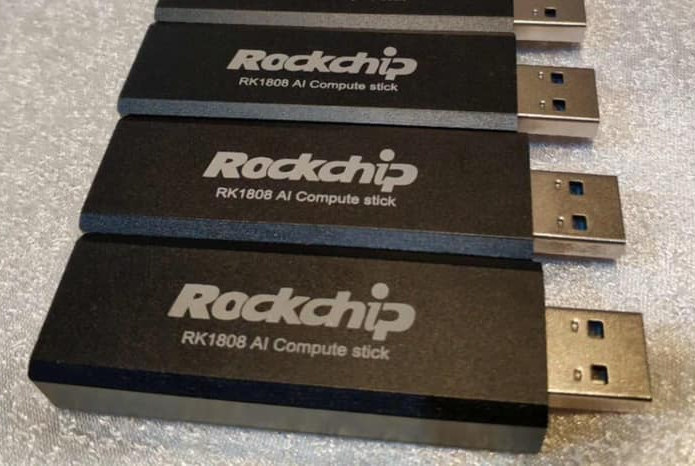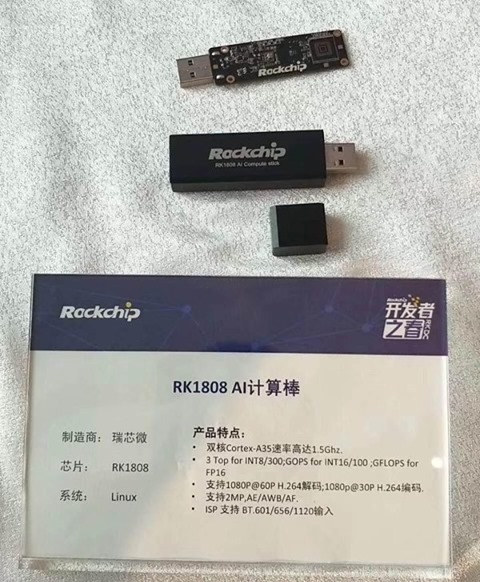Rockchip RK1808 looks like a nifty and inexpensive little chip for artificial intelligence applications delivering up to 3.0 TOPS at low power, and the company has already released documentation and a Linux SDK with Caffe and Tensorflow framework support for the chip.
So the main hurdle now is to get hardware to play with. Some people are selling (samples?) of the official RK1808-EVB on Taobao, but it costs close to $500 US. There’s still no RK1808 development board, but Rockchip has discreetly launched the RK1808 AI Compute Stick a few weeks ago.
RK1808 AI Compute Stick specifications:
- SoC – Rockchip RK1808 dual core Cortex-A35 processor with NPU
- AI inference performance – 3 TOPS for INT8, 300 GOPS for INT16, 100 GOPS for FP16
- Video – 1080p60 H.264 decoding, 1080p30 H.264 encoding
- Camera, ISP – 2MP camera support, ISP with BT.601/656/1120 support
- Host Interface – USB 3.0 port
- Power Supply – Via USB port
- Dimensions – 60 x 19 mm
It works just like the already released Intel Neural Compute Stick 2 and Orange Pi AI Stick, and you just need to connect it to a host computer or board like Raspberry Pi 3.
Sadly that’s about all the information I get. It’s very hard to get people answer simple questions like download links for tools and Linux SDK, and pricing. The company’s open source Wiki still does not have anything about the Rockchip AI compute stick.
I first found out about this new platform on Rockchip Korea Facebook account, and if you are interested, they said people could contact them by email to purchase a sample.

Jean-Luc started CNX Software in 2010 as a part-time endeavor, before quitting his job as a software engineering manager, and starting to write daily news, and reviews full time later in 2011.
Support CNX Software! Donate via cryptocurrencies, become a Patron on Patreon, or purchase goods on Amazon or Aliexpress






